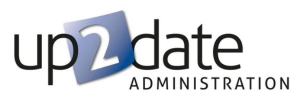Why Is Cash Flow Management Crucial For Businesses?

Cash flow management is an essential aspect of running a successful business. It involves tracking, analysing, and optimising the cash flow into and out of your business to ensure you have sufficient funds to meet your obligations and achieve your financial goals. This article will explore why managing cash flow is crucial for companies, its impact on operations, and how you can improve your strategies to maintain a healthy cash flow.
What is cash flow management, and why is it important?
Cash flow management is the process of monitoring and controlling the amount of money that flows in and out of your business. It involves tracking your cash inflows (revenue from sales, investments, etc.) and outflows (expenses such as rent, salaries, and utilities). Proper management of the flow of cash is essential because:
- Prevents liquidity issues: It ensures you have enough cash to cover your short-term liabilities and avoid financial trouble.
- Supports business growth: By managing it effectively, you can reinvest in your business, fund expansion projects, and take advantage of growth opportunities.
- Enhances financial stability: It helps you maintain a stable financial position, reduces the risk of insolvency, and enables you to weather economic downturns.
How does effective cash flow management impact business operations?
Effective management of cash flow has a profound impact on various aspects of your business operations:
- Smooth operations: This ensures you can pay your suppliers and employees on time, maintain smooth business operations, and foster strong stakeholder relationships.
- Improved decision-making: With clear visibility into your cash position, you can make informed decisions regarding investments, cost-cutting measures, and strategic initiatives.
- Optimised resource allocation: Effective management allows you to allocate resources efficiently, avoid unnecessary expenditures, and focus on high-impact areas.
What are the key benefits of proper cash flow management?

Proper management of it offers several key benefits:
- Enhanced financial health: By closely monitoring your cash flow, you can avoid financial pitfalls and maintain a healthy balance between income and expenses.
- Increased profitability: Effective management can help you identify and eliminate inefficiencies, improving profit margins.
- Greater business resilience: Robust cash flow practices can help you better handle unexpected expenses and economic fluctuations, ensuring your business remains resilient.
How can poor cash flow management affect your business?
Poor management of your finances can have severe consequences for your business:
- Operational disruptions: Inadequate cash flow can lead to missed payments, strained relationships with suppliers, and operational disruptions.
- Increased debt: You may need to rely on costly loans or credit lines to cover shortfalls, leading to increased debt and financial strain.
- Lost opportunities: Limited cash flow can prevent you from seizing growth opportunities, investing in new projects, or expanding your business.
What are common cash flow management mistakes to avoid?
Avoid these common management mistakes to keep your finances in check:
- Neglecting forecasting: When planning for your business, it’s essential to project future cash flow to anticipate and prepare for fluctuations in income and unexpected expenses. By doing so, you can ensure that your business is financially resilient and can navigate any challenges that may arise.
- Overestimating revenue: Relying on optimistic revenue projections without considering potential risks can lead to cash shortfalls.
- Ignoring expenses: Not keeping track of all your expenses can result in budget overruns and cash flow problems.
How can you improve your strategy?
To enhance the management of cash flow strategies, consider the following tips:
- Create a cash flow forecast: Develop a cash flow forecast to predict your cash inflows and outflows, helping you plan for upcoming financial needs.
- Monitor your cash flow regularly: Monitor your cash statements closely to identify trends and address issues before they escalate.
- Manage receivables and payables: To improve cash flow, optimise your invoicing process and negotiate favourable payment terms with suppliers.
What tools and techniques can help you?
Several tools and techniques can assist with adequate management of your business’ finances:
- Accounting software: Use software for accounting and bookkeeping services to automate financial tracking, generate reports, and gain real-time insights into your cash flow.
- Cash flow management apps: Explore apps designed for cash flow management to streamline processes and track your cash position on the go.
- Financial planning services: Consider working with financial planners or consultants who can provide expert advice and help you develop a robust cash flow strategy.
How can small businesses benefit from strong cash flow management?

Strong cash flow management is particularly beneficial for small businesses:
- Improved survival rates: Proper management helps small businesses navigate financial challenges and reduces the risk of failure.
- Greater flexibility: Small companies can respond to market changes, invest in new opportunities, and adapt to evolving needs.
- Enhanced credibility: Effectively managing cash flow enhances your business’s credibility with lenders, investors, and suppliers. This will make it easier to secure financing and favourable terms.
What steps can you take to monitor and manage cash flow effectively?
To monitor and manage cash flow effectively, follow these steps:
- Track cash flow daily: Regularly review your cash flow to stay informed about your financial status and make timely adjustments.
- Review financial statements: Regularly analyse your financial statements to identify trends and areas for improvement.
- Maintain a cash reserve: Build and maintain a cash reserve to cushion against unexpected expenses and fluctuations in cash flow.
How can expert advice enhance your business?
Expert advice on cash flow management can provide valuable insights and guidance:
- Strategic planning: Experts can help you develop and implement effective cash flow strategies tailored to your business needs.
- Financial analysis: They can analyse your financial data to identify opportunities for improvement and offer solutions to enhance cash flow.
- Risk management: Professionals can assist with risk management, helping you anticipate and mitigate potential cash flow challenges.
Ready to take control of your cash flow?
Effective cash flow management is crucial for your business’ success and stability. If you need expert assistance to optimise your cash flow strategies, reach out to Up2Date Administration. Our team of professionals can help you navigate financial challenges, improve your cash flow, and achieve your business goals. Contact Up2Date Administration today to take the first step towards a healthier financial future.
